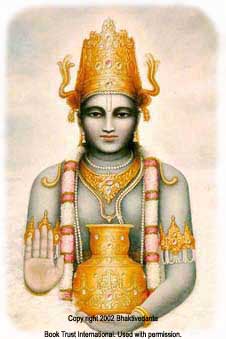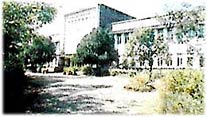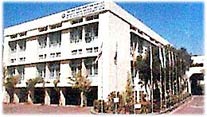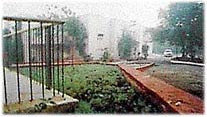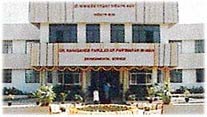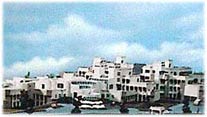|
|
Yoga Course in Pune university (3 months course) |
||||||||||||||||||||||||||||||||
|
인도에서는 육파철학(六派哲學), 즉 베다(Veda)를 중심으로 하는 미만사(Mimāmsā:聲論派)와 베단타(Vedānta:吠檀多派), 논리적 특징을 중시하는 니아야(Nyaya:正理論派)와 바이세이시카(Vaiseisika:勝論派), 《우파니샤드 Upani合ad》를 중심으로 하는 상키아(Sāmkhya:數論派)와 요가파(瑜伽派)로 발전하였으며, 당시의 모든 학파는 그 실천방법으로서 요가를 수련했다.자연[大宇宙]은 변화 ·조화 ·안정의 법칙에 따라 움직이며, 인간[小宇宙]의 심신의 변화도 이 자연의 흐름에 따르기 때문에 대우주와 조화를 이루려는 활동,
즉 생명현상이 간단없이 일어나며, 요가의 수련과정은 모두가 정신력을 개발하고 육체를 강화하는 목표를, 평형상태의 유지와 조화에 둔다. 요가의
수련은 도덕적인 통제를 우선한다. |
||||||||||||||||||||||||||||||||
|
|
||||||||||||||||||||||||||||||||
|
The University of Pune ( formerly known as University of Poona
) was established under the Poona University Act, passed by the
Bombay Legislature on 10th February, 1948. In the same year, Dr.
M. R. Jayakar assumed office as the first vice chancellor of the
University. Initially the University had a jurisdiction extending over 12 districts of Western Maharashtra. However, with the establishment of the Shivaji University, Kolhapur, in 1964, the jurisdiction of the University was restricted to 5 districts, namely Pune, Ahmednagar, Nasik, Dhule and Jalgaon. Out of these, two districts - Dhule and Jalgaon are attached to the North Maharashtra University established in August 1990. During the year 1949, there were only 18 colleges affiliated to the University, with an enrollment of over 8000 students. Thereafter, the number of colleges increased, and in 1994-95, the University had 41 post-graduate departments, 209 affiliated colleges and 118 recognized research institutions, with an enrollment of 1,70,000 students for both the under-graduate and post-graduate courses in different faculties. 70research institutions have been recognized by the University for research. These include institutions of national importance like the National Chemical Laboratory (NCL), MACS, CWPRS, NIV, Gokhale Institute of Politics and Economics, Deccan College among others. Since its inception, the progress of the University of Pune
has been inextricably linked with the efforts of an illustrious
list of Vice-Chancellors.
Contents of the syllabus - · Misconceptions of Yog. · Different Schools of Yoga · Introduction to Ashtanga Yoga with emphasis on Bahiranga Yoga · Physical and Mental Relaxation · Tension –free Concentration · Introduction to Meditation · Shavasan – Meditation. · Introduction to Yogic Diet & Behavior · Right and wrong ways of practicing Asanas. · Right and wrong ways of practicing Pranayam. · Practical application of principles of Ashtanga Yoga. · Introduction to physiology and Anatomy
in Relation to Yoga and General Health. For Student Visa:
Registration and Admission of External Candidates to the Pune University Courses A large number of aspiring students cannot undertake regular courses in the Colleges or in the Pune University Departments either due to lack of financial resources or non-availability of time to attend full-time courses or because they stay at remote places far away from the colleges. Some of them are either employed or housewives or even senior citizens unable to join regular courses. Pune University for last several decades is facilitating such students through its External Registration Program which allows them to register for certain courses, undertake self-study of the stipulated syllabi and directly appear for the examinations leading to graduate or post-graduate degrees in certain faculties. Under this program, Pune University awards graduate degrees such as B.A. and B.Com. and Post-Graduate Degrees such as M.A., M.Com, M.Sc. (Maths), M.A. (Maths), L.L.M. and Class Improvement of certain examinations. This facility is being availed by about 50,000 students annually. Problems of the Current Process: So far the registration and admission process was carried out in a traditional manner with paper and print medium and communications through postal service. In many cases aspiring candidates had to undertake the journey to Pune and visit the University Campus or face the postal delays and occasionally also suffer from the loss of documents in transit. All this was causing a lot of undesirable time and cost burden to them in addition to anxiety and inconvenience. In many cases the information and rules and regulations printed on the forms and prospectus could not be clearly interpreted by the candidates especially in understanding the eligibility and ATKT criteria, required documents to be attached to the forms, choice of subjects permitted as per the University rules, fee structure, due dates, examination formalities, etc. The printed information was too general and at times rather too comprehensive than what was specifically applicable to particular candidate in his specific context. Instead of reading this huge amount of general information the candidate needed personalized help to finish his registration. All this needed face-to-face interactions of a large number of candidates with a limited administrative staff of the External Section of the Pune University. This led to severe delays and inconveniences to the candidates apart from an inadvertent load on the administration. In order to facilitate the candidates, Pune University distributed the same process and made the services available at 9 colleges last year. However, the limitations of the traditional system prevailed and the relief to the candidates could not be ensured at the desired level. New Internet based Process: After a careful analysis of the present system and the experience of last year, it was decided to completely reengineer the traditional process in the overall interest of the candidates by exploiting the advances in web technology. Main objective is to facilitate the candidates by cutting down their costs and avoiding delays and inconvenience. Pune University has entrusted the task of design, development and deployment of this system to the Maharashtra Knowledge Corporation Limited (MKCL). The entire process of application for registration and admission of the External Candidates shall be brought on a website on Internet so that candidates can now apply from anywhere and any time. The details of the website shall be published in June 2003 in the admission notification in the press by the Pune University. The application form can be filled in either from any cyber caf?or any home computer connected to Internet. The candidates do not have to undertake journey to Pune or physically come to interact with the administrative staff of the University. The information in the form shall be requested in English and Marathi and entries are to be made in English. Mass Personalization: The website specially designed for this purpose contains all the information and rules about the courses including the syllabus, eligibility conditions, fee structure, due dates, etc. However, the software hosted on this website for filling in the Application Form on Internet has been so designed that the candidate is presented with a step-by-step and guided process to fill in the form. The next piece of information requested from him is based on online processing of his previous entries and interpretation and applicability of various rules to his specific case. Thus, the candidate gets a feel that the Application Form is, as if, specially designed for him or personalized for him. As this is simultaneously applicable to a large number of candidates, the application process gets transformed from a generalized faceless process to a mass personalized service suited to the real need felt by the candidates. It is in this way a transition is being made by the External Section from a role of education administrator to a new role of education facilitator. Call Center Facility: In addition to this, the candidates shall also be facilitated through a Call Center on a round the clock (24*7) basis. They can call the facilitator over an ordinary telephone line in Marathi or Hindi or English and get their difficulties solved so that the registration and admission process can be completed smoothly. Student Facilitation Centers: MKCL is also setting up Student Facilitation Centers in the tehsils of the Pune, Nasik and Ahmednagar districts and at all other district headquarters. Candidates can get the counseling, personalized help-desk, computer operator assistance and Internet facility at reasonable rate at these centers so that they will not face any difficulty in the electronic form filling process. Post-application value-added Services: The candidates can always check the status of their cases or revise the information directly on the website and also instantly receive by email (in addition to printed communication by post) the acknowledgement of form, certificates and documents sent by post, demand draft of fee and photograph, eligibility status, discrepancy report (if any), examination schedule, notices and reminders, status checks on SMS, printed Registration Card etc.
웹싸이트 주소 : http://www.unipune.ernet.in |
|
|
